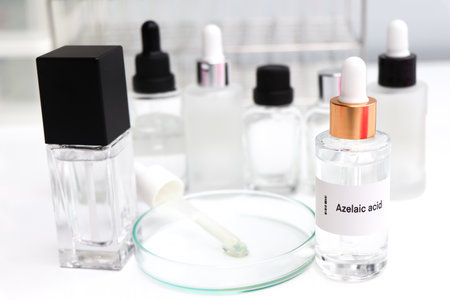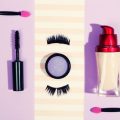1. Overview of British Beauty Standards
The concept of beauty in the UK has always been a fascinating blend of tradition and transformation. Historically, British beauty ideals have drawn heavily from royal influence, class distinction, and media representation. For instance, the classic “English rose” look—pale skin, rosy cheeks, and understated elegance—has long been celebrated as an epitome of British femininity. Over time, these standards have shifted due to evolving social attitudes, increased cultural diversity, and the powerful impact of global fashion trends. Today, beauty in Britain is less about rigid conformity and more about individuality and self-expression. This evolution can be seen in everything from street style in London’s Soho to the diverse faces gracing magazine covers. The table below highlights how different factors have influenced British beauty standards over the years:
| Influence | Traditional Standards | Modern Interpretations |
|---|---|---|
| History | Royalty-inspired looks, modesty, fair skin | Heritage-inspired but inclusive of global influences |
| Media | Classic film icons (e.g., Audrey Hepburn), minimal makeup | Diverse representation, bold makeup choices |
| Society | Class-based grooming, understated presentation | Individuality, acceptance of unique features |
This ongoing shift is not just reflected in appearance but also in attitudes towards personal care and grooming routines for both men and women. As a result, British beauty standards today are defined by their openness to change while maintaining a nod to heritage and authenticity.
2. Cultural Trends and Public Perceptions
British beauty standards have always been deeply influenced by the cultural landscape, from the swinging sixties to modern pop icons. In today’s UK, mainstream ideals are shaped not only by traditional notions of elegance and subtlety but also by the ever-evolving world of British pop culture and celebrity influence. Icons like Kate Moss, Adele, and Stormzy have set trends that reflect both diversity and an embrace of individuality, moving away from a one-size-fits-all approach to beauty.
Celebrity endorsements and social media presence play a significant role in shaping consumer behaviour. British consumers increasingly look up to personalities who promote natural looks, minimalistic makeup, and eco-friendly lifestyles. This has led to a gradual shift towards sustainable makeup choices—products that are cruelty-free, vegan, or come in recyclable packaging now garner more attention than ever before. Daily life in Britain, with its unpredictable weather and bustling urban environments, further encourages practical beauty routines focused on comfort and authenticity.
The Influence of Pop Culture vs. Daily Life
| Pop Culture Impact | Daily Life Realities |
|---|---|
| Trendsetting celebrities influence product launches and marketing campaigns | Consumers seek products suitable for commutes, rain, and long work hours |
| Social media challenges encourage new makeup techniques | Time-saving routines prioritised over complex looks |
| Focus on inclusivity and diverse representation | Preference for subtle enhancement rather than bold transformations |
Shifting Public Perceptions
The growing awareness around sustainability is changing public perceptions of what it means to be beautiful in Britain. Eco-consciousness is no longer a niche concern; instead, it is becoming central to how people judge both products and brands. Consumers expect transparency about sourcing, production methods, and brand values.
The Role of Community and Conversation
Local communities and online forums are pivotal in spreading awareness about sustainable makeup options. British consumers value honest reviews from peers as much as endorsements from celebrities. This collective dialogue is gradually redefining beauty standards, encouraging both men and women to choose products that align with their personal ethics as well as their everyday needs.

3. The Rise of Sustainable Makeup in the UK
In recent years, sustainable makeup has become a prominent trend in the UK, reshaping how British consumers approach their beauty routines. With increasing awareness about environmental issues and animal welfare, people across the country are paying closer attention to what goes into their cosmetics – and what happens after theyve used them. This shift towards sustainability is driven by several factors, from the demand for eco-friendly packaging to a stronger preference for cruelty-free ingredients.
Eco-Friendly Packaging: Less Plastic, More Innovation
One of the most noticeable changes on British high streets is the move away from single-use plastics and excessive packaging. Brands now offer products in recyclable or biodegradable materials, and some even introduce refill stations in-store. This not only appeals to environmentally conscious shoppers but also aligns with wider government initiatives to reduce waste.
| Packaging Type | Key Features | Popular Brands in the UK |
|---|---|---|
| Recyclable Materials | Can be recycled curbside; minimal plastic use | Lush, The Body Shop |
| Biodegradable Options | Breaks down naturally; often made from plant-based sources | UpCircle, Beauty Kitchen |
| Refillable Systems | Reusable containers; reduces overall waste | Kjaer Weis, Hourglass Cosmetics |
Cruelty-Free Ingredients: A Core Value for Brits
The UK has long been at the forefront of animal rights, so its no surprise that cruelty-free cosmetics resonate strongly with local consumers. Many brands proudly display certifications like Leaping Bunny or Vegan Society, assuring customers that no animals were harmed during production. This ethical stance is increasingly non-negotiable for buyers seeking both performance and peace of mind.
The Driving Forces Behind the Shift
The growth of sustainable makeup is further fuelled by social media awareness campaigns, celebrity endorsements, and educational content about the impact of beauty products on our planet. British consumers are no longer satisfied with just looking good—they want to feel good about their choices too. This holistic approach to beauty blends personal care with global responsibility, making sustainability not just a trend but a lifestyle.
4. Popular Sustainable Brands and Local Innovations
When it comes to sustainable makeup in Britain, a number of homegrown brands are leading the charge, blending eco-consciousness with the high standards expected by British consumers. These brands aren’t just about greenwashing—they’re genuinely committed to reducing environmental impact and promoting ethical beauty routines that resonate with UK values. Let’s take a closer look at some of the standouts and innovative local initiatives making waves on the British beauty scene.
Leading UK-Based Sustainable Makeup Brands
| Brand Name | Sustainable Features | What Makes Them Stand Out |
|---|---|---|
| Lush | Vegan formulas, packaging-free options, ethical sourcing | Pioneers in naked cosmetics, strong stance on animal rights |
| PHB Ethical Beauty | Organic ingredients, recyclable packaging, cruelty-free | Family-owned, donates profits to social causes |
| UpCircle Beauty | Repurposed ingredients (e.g., coffee grounds), plastic-free packaging | Circular economy approach, zero-waste mission |
| Beauty Kitchen | Refillable packaging, carbon-neutral production | Return · Refill · Repeat scheme for containers |
Innovative Local Initiatives Setting New Trends
The UK is also home to grassroots projects and inventive retail concepts that champion sustainability. For instance, refill stations in London’s independent beauty shops encourage customers to top up their foundation or cleanser without buying a new bottle each time—a simple idea that cuts down significantly on plastic waste. Similarly, pop-up events like ‘Sustainable Beauty Markets’ in cities such as Manchester and Bristol showcase indie brands using local botanicals and upcycled materials, supporting both eco-friendliness and regional enterprise.
The Impact on British Beauty Standards
This growing focus on sustainability is gradually reshaping what it means to be beautiful in Britain. Ethical choices are becoming synonymous with style—making it trendy to choose vegan lipstick or refillable compacts over traditional alternatives. As these local brands and initiatives continue setting new trends, they empower everyday Britons to embrace makeup routines that align with their values—good for the skin, good for the planet.
5. Challenges and Opportunities for the Industry
When it comes to sustainable makeup in the UK, brands are navigating a landscape filled with both tough challenges and exciting opportunities. British consumers are increasingly conscious of their environmental impact, but this shift in attitude doesn’t mean the journey is without its bumps. Let’s have a closer look at what’s holding sustainable beauty back—and where the real chances for growth lie.
Main Challenges Facing Sustainable Beauty Brands
| Challenge | Details |
|---|---|
| Higher Costs | Sustainable ingredients and eco-friendly packaging often come with increased production costs, making it difficult for smaller brands to compete on price. |
| Consumer Awareness | Many customers remain sceptical about ‘greenwashing’ and may struggle to distinguish genuinely sustainable products from those making misleading claims. |
| Regulatory Barriers | The UK market has strict regulations for cosmetics, and sustainable alternatives must meet these requirements without compromising quality or safety. |
| Supply Chain Limitations | Sourcing ethical ingredients locally can be tricky, especially for niche or rare components that may not be readily available in Britain. |
Opportunities for Growth and Wider Adoption
- Innovation: British brands are leading the way in developing refillable packaging, biodegradable formulas, and cruelty-free testing methods. This inventive spirit is highly valued by eco-conscious consumers.
- Education: There’s plenty of room to educate shoppers about what sustainability actually means—helping them make more informed choices rather than just following trends.
- Local Sourcing: With increasing interest in supporting local businesses post-Brexit, there’s a real opportunity for brands using British-grown ingredients to stand out.
- Community Engagement: Collaborating with UK influencers and grassroots organisations can drive authentic conversations about sustainable beauty and foster trust within local communities.
The Future Outlook
The push towards sustainability in British beauty isn’t slowing down any time soon. While overcoming these hurdles requires investment and innovation, the appetite for greener options is only growing stronger among British men and women alike. For brands willing to adapt and evolve, there’s never been a better time to make their mark on the industry.
6. British Consumers: Attitudes and Adoption
As sustainable beauty becomes more mainstream in the UK, both British men and women are noticeably adapting their daily routines and mindsets to embrace eco-friendlier choices. Historically, beauty standards in Britain have been shaped by subtlety, classic grooming, and a preference for natural looks. Today, these ideals are merging with an increasing awareness of environmental impact, leading to a steady shift in consumer behaviour.
Changing Routines: From Shelf to Skin
British consumers are now paying closer attention to product ingredients, packaging, and company ethics. The move towards refillable makeup containers, biodegradable wipes, and cruelty-free formulations is evident on high street shelves as well as online. Men are also getting involved—investing in multipurpose balms, beard oils with natural ingredients, and minimalist skincare routines that prioritise sustainability without sacrificing effectiveness.
Key Mindset Shifts Among British Consumers
| Aspect | Traditional Approach | Sustainable Approach |
|---|---|---|
| Product Selection | Brand loyalty, performance-driven | Ingredient transparency, ethical sourcing |
| Packaging | Single-use plastics | Recyclable or refillable options |
| Routine Frequency | Multi-step regimes | Simplified steps with multi-use products |
Adoption Across Genders
The sustainable movement is not limited to women—there’s growing visibility for men who champion green grooming. Social media influencers and celebrities promote natural looks and zero-waste solutions. For example, many men now opt for bar soaps over bottled washes or select shaving creams in aluminium tins rather than plastic tubes. Women continue to lead in experimenting with vegan makeup and supporting local British brands committed to sustainability.
Cultural Embrace and Barriers
While the transition is promising, challenges remain. Price sensitivity can be an obstacle, as sustainable products sometimes come at a premium. Nevertheless, increased availability and awareness are making it easier for the average Brit to adopt greener habits. Community-led initiatives—like refill stations in Boots or John Lewis—are also helping bridge the gap between intention and action.
The ongoing evolution of British beauty standards reflects a broader societal commitment to responsible consumption. As more consumers embrace sustainable makeup choices, the UK sets a compelling example for balancing personal care with planetary wellbeing.


